I was living in Mexico the first time I heard the term “negrita”. I was practicing my nascent Spanish with a new Mexican friend. This exercise was great for my shaky language skills but mentally exhausting– my head ached from trying to piece together meaning from his rapidly spoken words, a code coated in a thick regional accent. But when he called me negrita I heard and understood the word with exceptional clarity and was unsure of whether or not I was supposed to be offended. It sounded awfully close to the N-word, too close. My context, upbringing, and cultural baggage made negrita feel like a sharp slap, a slur, a direct assault on an aspect of myself of which I am very proud. In that moment, the time when I was walking to my university campus years before and some idiot in a car screamed “Nigger!” out their window as they drove past came flooding back; the memory of the puzzlement, anger, and humiliation I felt surfaced anew, wild and raw as the first time. But the moment passed, slow-quick like sands through the hourglass, and I came to discover that the word whose counterpart in inglés evokes so much pain is actually a term of endearment in Latin America. Or so they say.
***
Addressing a person by referring to their appearance is ubiquitous from Tijuana to Tierra del Fuego: across Latin America, blondes are uniformly called rubio, portly persons gordo, and the vertical-challenged chico (the endings change to “a” when the subject is feminine, and the use of the diminutive “ito” or “ita” connotes affection). Like it or not, race and ethnicity do not escape this practice either: no matter the exact location of your Asian roots, you will be branded chino (Chinese), and those with deeper skin tones are routinely called moreno/morocho (roughly translating to “dark”), or negro (“black”). This method of nomenclature, while transparent and unambiguous, can also be inaccurate and politically incorrect at times, especially for the uninitiated. Additionally, the tone, social standing, and cultural context of both the addresser and addressee can have a major effect on the way this practice is employed and perceived.
As an outsider to Latin culture, it’s not my place to say whether the practice is right or wrong– I don’t fully understand it– but I *can* comment on how I felt the first time my new friend called me negrita: confused and a bit powerless. Because that’s the thing about travelling and living away from home: your values, cultural mores, and understanding of what is right, good, and just are constantly challenged by the standards and norms of the place you find yourself in. And sometimes, it can be downright perplexing and frustrating when what you have been conditioned to find deeply offensive at home (in my case, Canada) doesn’t raise an eyebrow in a foreign land. It feels like writing a test you didn’t study for, or being asked to perform a song you don’t know the lyrics to– this, for me, is the definition of culture clash.
But then you learn how “things work”, and what was once shocking becomes almost commonplace. After years of travel in Latin America, I’ve become accustomed to this way of doing things, so when I’m walking the streets of Panama City or Quito or Santiago and someone (usually a man) calls out “negrita!” as my shadow darkens their path I don’t even flinch. But I never respond in kind. Because we just don’t do that where I’m from.
Are you offended by the Latin American practice of addressing someone by referring to their appearance? Is it more or less offensive depending on the term? Why or why not?

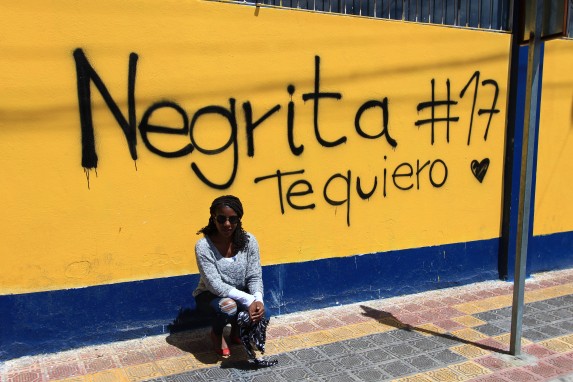
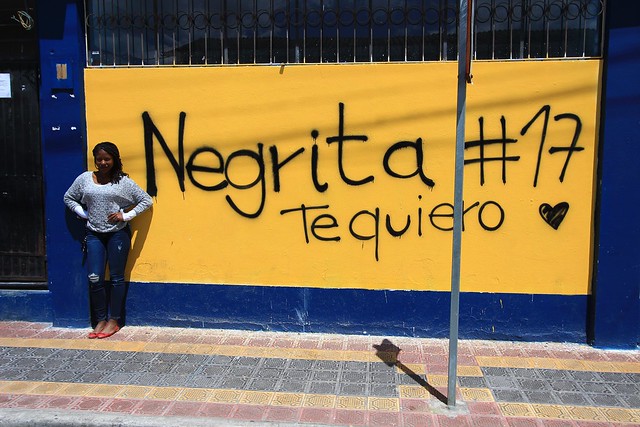








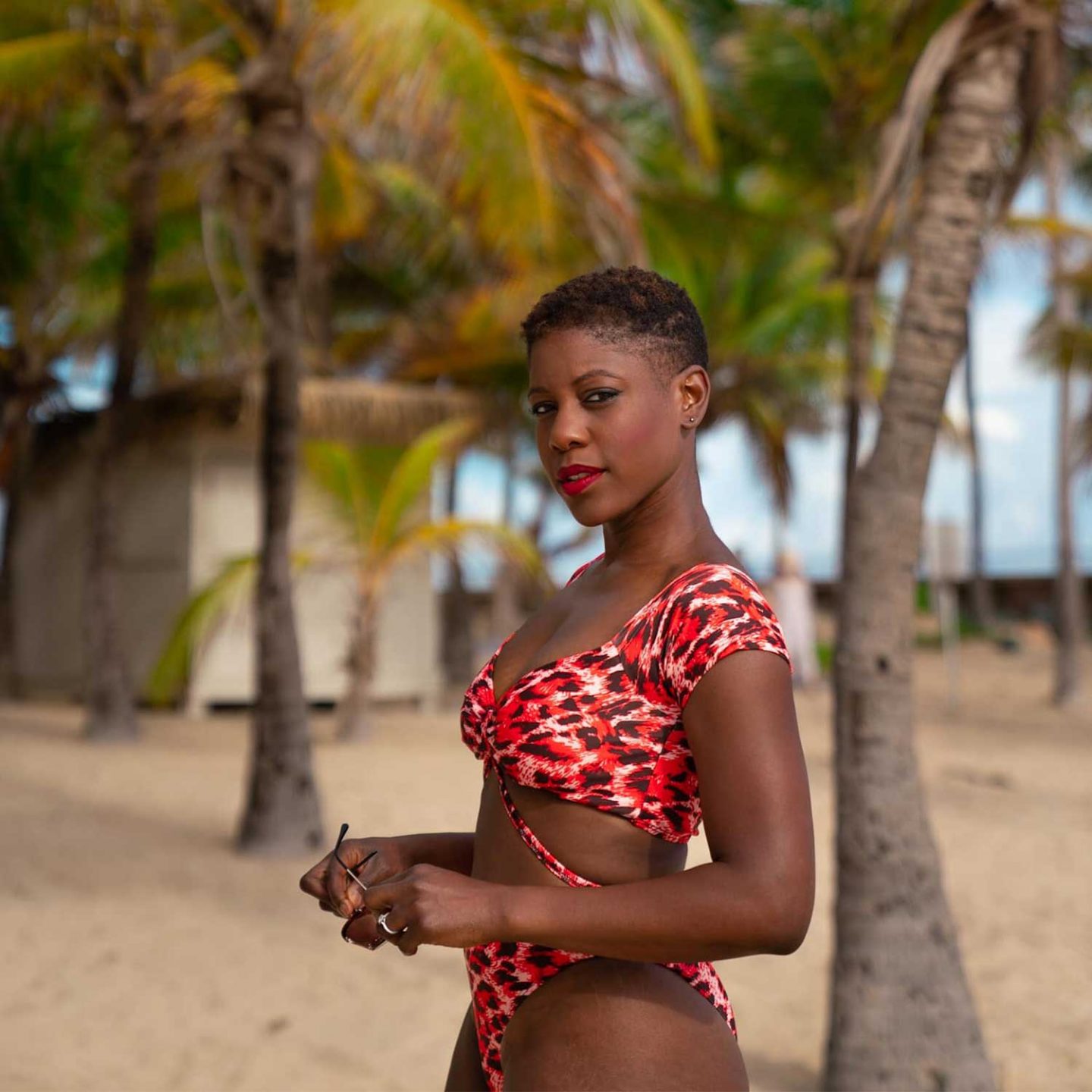
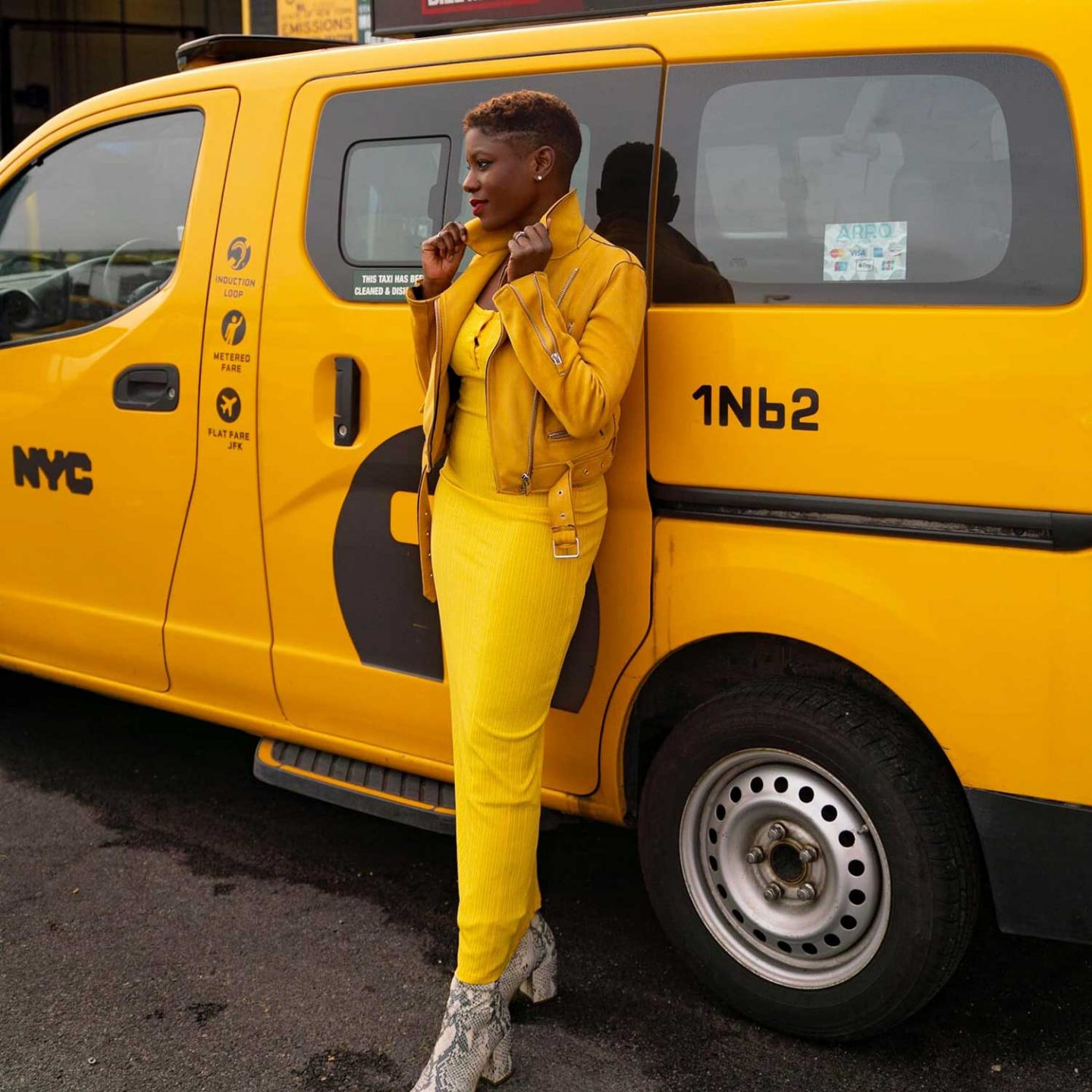

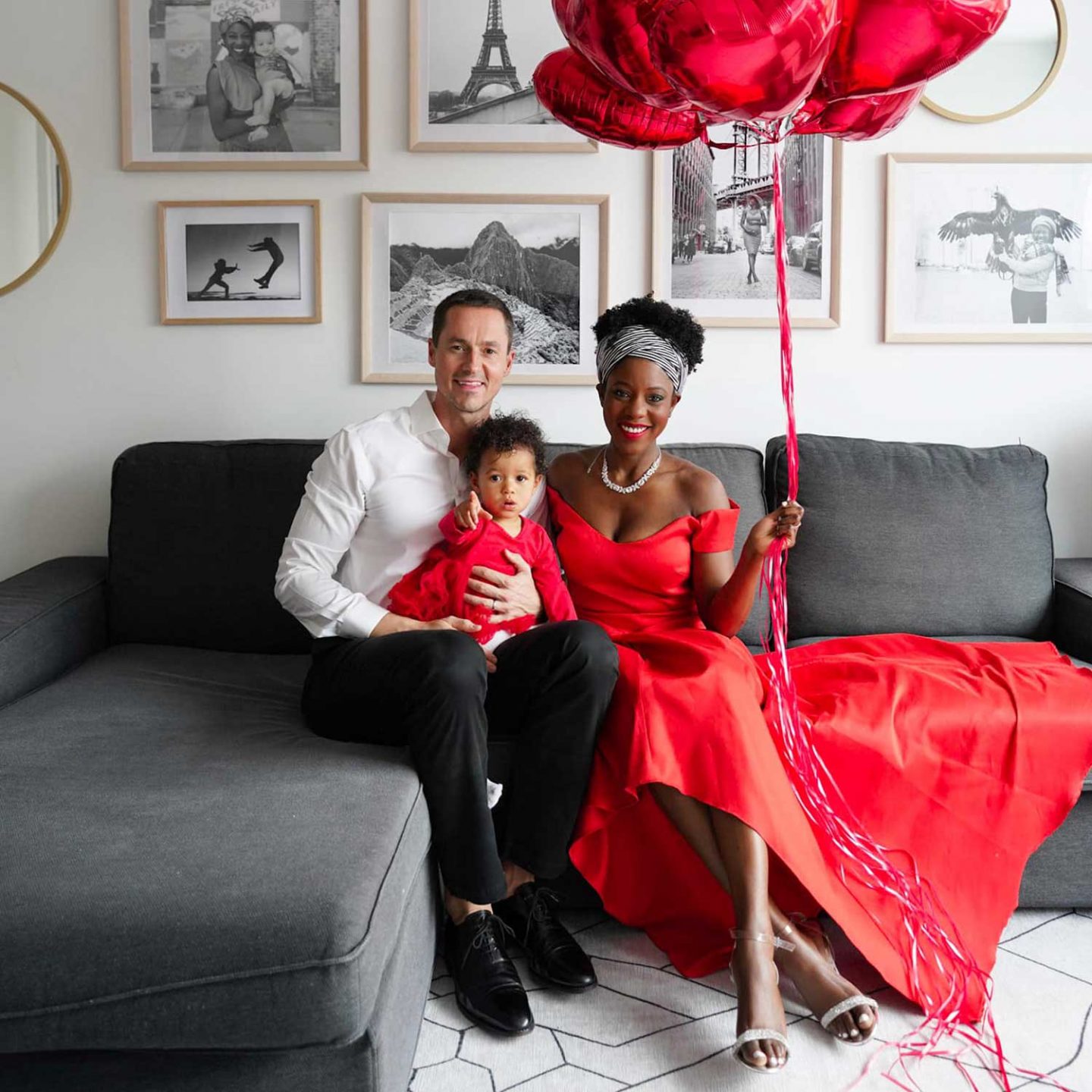
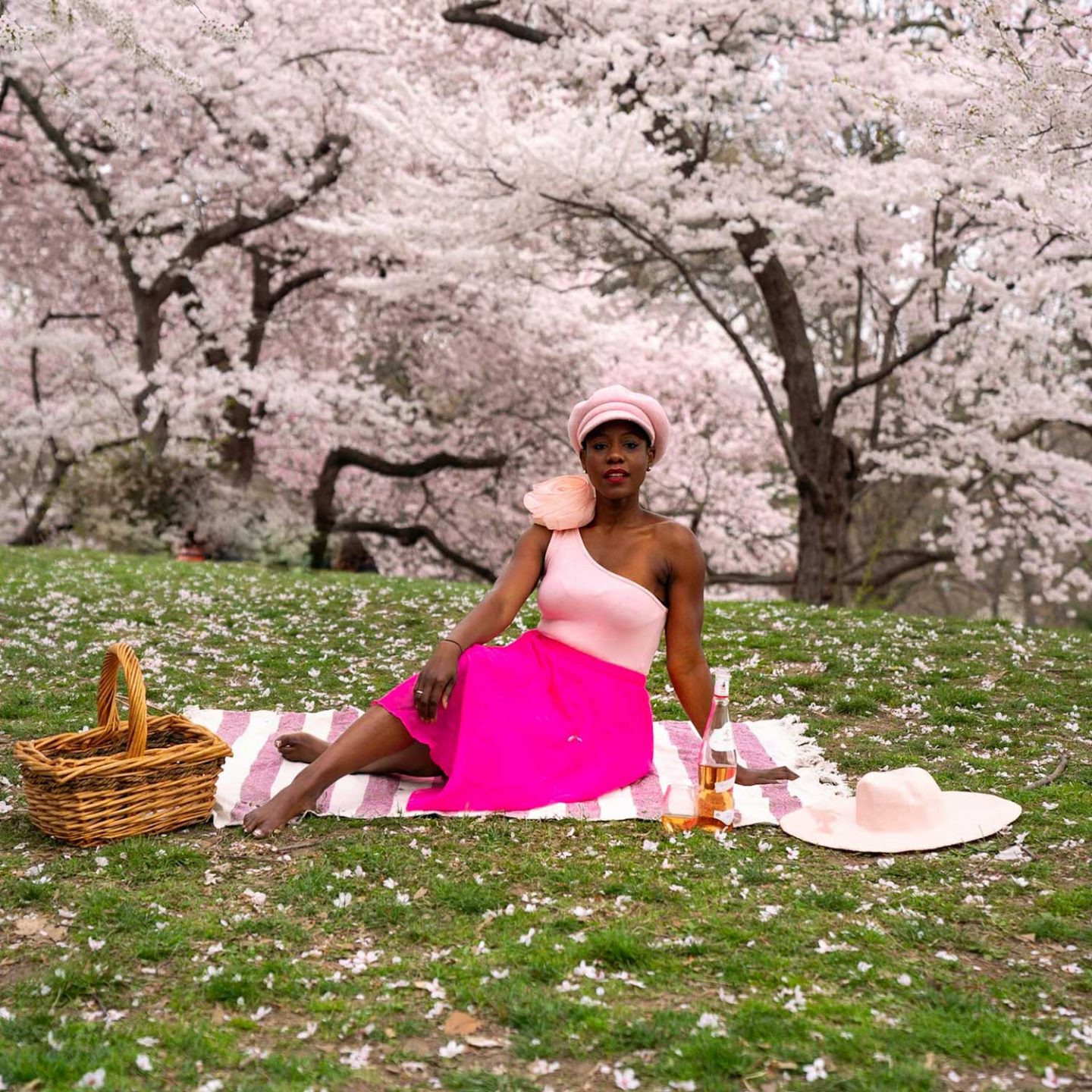
81 Comments
Thank you so much for your blog. As a black woman I want to travel the world but I always wondered how I would be received in other countries due to the color of my skin. I think your attitude towards being called negrita was very appropriate and I will keep that in mind when I travel overseas.
Thank you!
Hi. I’m Kay and I am a man not a woman. I also worked in Mexico for most of a decade and I know Spanish and, well, the reality of what is going on with people there calling you “negrita” isnt quite the way you are understanding it and its really not at all cool or particularly endearing in nature no matter what you may have been told, but, to explain how that is…does require some deeper understanding of the Mexican culture and of Spanish and how it is used there.
I will go into that shortly, but, first let me clarify that the concept of “political correctness” does not cross cultural boundaries at all. The same with the word “patronizing” and the concept of “racism” also does not always translate very clearly in Mexico.
So, here is a bilingual explanation regarding the use of the term “negrita” and it related to a conversation I had with a guy I know in Mexico City a long time ago when I noted that he was using that term….
Me – Acabas de decir negrito, verdad ?
Alejandro – Si . Y ?
Me – Por que lo dices ? No se te hace racista decir eso ?
Alejandro – Yo no soy racista.
Me – Ok, pero esa palabra, si, lo es.
Alejandro – No, no es cierto y ademas fui cortes.
Me – Como ? Por que dices que fuiste cortes ?
Alejandro – Por el diminutivo. Sino se oyera muy feo.
Me – Decir negro se oye feo ?
Alejandro – Claro.
Me – Y eso ? Por que ?
Alejandro – Porque implica que son muy negros…muy morenos.
Me – Ah. Y eso es malo ?
Alejandro – Pues, no malo necesariamente, pero, si, es muy feo.
Me – Ah ok.
So, thats what they are really thinking when they say that. They think you’re ugly because you’re black and they want to be polite and maybe less offensive, so, they put the diminutive on it “ito/ita” because that makes it sound more “cari~oso” ( read “endearing” ) to them.. As I said earlier, the concept of “political correctness” does not translate. This guy Alejandro thought he was being polite and maybe politically correct by using that term.
Ok, maybe that sounds a little harsh, but, thats just how things are there. And, yes, it does come from certain antique concepts they retain from the Colonial Era when there was a system ( a legal system, note ) of some twenty or more racially-defined castes. But, despite whatever vestigial anachronisms might apply to that particular cultural idiosyncracy, in my humble opinion, it still does not justify addressing someone according to their race. Like if I was to say :
Me – Eh,, tu, Mexicanito, si, tu indito que haces ahi en mi puerta ? * ( maybe sounds like he’s pissing on my doorstep )
That would not be considered especially polite despite my using the diminutivo. Why ? Because I called him an Indio.
Essentially, this kind of culturolinguistic thing really doesnt have a good translation into any United States-focused cultural context. And, yes, its accepted behavior in many parts of Mexico ( including Mexico City ) to call black people “negritos” and for the exact reason that I gave in that conversation.
As for guys who are complete strangers calling out stuff to women they see on the street or wherever, its kind of rude, and you shouldnt give any kind of response. Its something they call a “piropo”, but, if you were to smile or respond in any kind of way they would just see it as proof that you were not a decent woman and that you were open for an immediate hook-up. Just the way that is. Sometimes, guys just think its a kind of cool thing to do. its definitely a sexist thing to do, no one is going to deny that. W/e, Just how things are there.
Y si no les parece, ni modo. Me vale todo un comino y para que defenderlo a lo que es un obvio caso de racismo ? No existe la menor justificacion para emplear cada palabra referente a la raza de uno en la conversacion normal ni mucho menos cuando conversas con un amigo. Y bien lo saben uds. Justificarlo es una payasada. Y bien puede ser que estoy amargado pero lo vi diario en tu pais y no es exactamente dificil corregirse y decir otra cosa y no juzgar porque al decirlo, eso, si, es juzgar y caer en cada maldito anacronismo y bien lo saben.
My cousin is called la negrita and she is blonde. I am called gorda(fat), and I has been thin all my life.
I’ve gotten used to it now that whenever someone catcalls me Chino on the street, I just reply, “You’re a beaner!” They just have a look of confusion on their face. It’s extremely gratifying. Serves them right.
I don’t think that it’s mostly used in an offensive way. The tone and the way it’s used can be used as a negative way but most of the time it’s not. My mom and sister are really dark with really curly hair. Their nicknames are chocolatita, morinita, negrita, (chocolatee, dark, black) etc. It’s used in an endearing way and it was never seen as anything offensive. My mom loves her dark skin and teaches my sister to do the same. I personally wish I had gotten their darker skin complexion but every time we call my mom chocolatito she smiles and flaunts her curls and her face. Negrita is used as a compliment. Mexican culture is completely different. When I had to take Adderall for my ADHD my family would call me loquita (crazy) but they never meant it in a way to hurt my feelings. They use the “ita” to show how close someone is to them. Im also short and skinny so I get chiquita (short) and flaquita (skinny) too. My sister is chubbier so she is called gordita. They don’t call her gordita to fat shame her or anything but it’s just a physical aspect. Now that I’m in high school and I read a lot about race, gender, sexuality, etc I realize why people might take it the wrong way. I just hope you understand that not all people from Latin America use it to shame you or make fun of you for it but sometimes it’s just the way their culture works. I know it is not politically correct but since most of Latin Americans don’t use it in a negative way they don’t usually see the issue right away. That is why when you respond to them beaner they get confused because maybe they didn’t use Chino in a way to offend you.
It’s cuz were crazy sorry
Viva la raza lol
I’m white af
My dad would call me negro
Also a girl
One of my besties also calls me negro
I’m vibrant af and tote take it as a compliment and with lots of love
Don’t think there’s a real explanation as to how it’s used now directly as it changes so much regionally and even familially and in micro communities barrios ever one will use the term in a different way and with a different meaning sat with the implications it had when being taught it from who and where they are from seems your friend was using it endearingly and many just use it bluntly or obviously some as a slur everyone is so unique it rubs off on language and the barriers those differences create one term always has two separate whole meanings the one from whom relays and the one of whom receives
They’re all made up anyway
It is not the same thing at all. It is obvious many of you don’t understand how things work when speaking spanish in Mexico. You are trying to cause a problem because of something you don’t understand. It is a term of endearment or used as a form of calling out a person if they are unaware of a persons name or if it is something that has caught attention. I’m from Mexico and the way many people described it is wrong. And using beaner is the equivalent of the n-word for black people. Dont attempt to justify your use of the word.
someone called me ‘moreno’ chica in spain. I think it just means brown. but im less likely to be concerns as in previous days if that calling is not because you want to oppress me but simply think im cute. I mean the N word if not for what someone mean has roots in Nigeria and Nigeria is not because it is brown but because its close to the river Niger. I mean its silly a little like that game ‘telephone’ when we were kids.
Tone and context are so important!
“Morena” actually means you are beautiful in most context, as the ideal of beautiful are women with darker features. In thousands of songs “morena” is used as a way to refer to the loved girl. But, then again, tone and context are important! By the way, if you are not comfortable with it, feel free to tell people not to call you “morena”, because they do not mean to hurt your feelings and definitely prefer knowing it in advance rather than finding out later on when the damage is done.
I am from Latin America- well at least the dictionary definition of Latin America: Barbados in the Caribbean.
I have heard of people of colour living and visiting the region having your exact experience.However, because they were people of colour, I was not aware that name calling extended to all races and physical attributes.
To be honest I think it is a bit offensive. I think when you refer to someone based off the way they look, you are not seeing the person beyond their appearance. I think that this is especially dangerous because, let’s face it, most of these names have stereotypes attached to them. I am not a stereotype.
I live in the Middle East now, and trust me, this practice- and for people of colour only, is the norm. It is not a good feeling at all even when many many times the person does not ‘mean’ to be offensive.
I write about my own experiences as a black woman on my blog: Petra: in the Middle East.
Thanks for sharing your perspective, Petra! I will check out your blog. What is the practice in Barbados? I wonder if it is similar to Jamaica.
I am from Trinidad. I wonder who is the writer that would write and say that Barbados is part of Latin America. That is incorrect. Barbados was part of the British Commonwealth and also
gained independence like some of the other British islands. It’s location is situated far from the Latin American countries. The people definitely do not speak Spanish. In Trinidad, we have always learned Spanish in high school (and I am sure they also did so in Barbados) and we always had Venezuelans living (Trinidad) and we are definitely not Latin American. For a matter of fact certsin parts of Trinidad is only 9 miles off of Venezuela. You will also find streets with Spanish names because of its history. In later centuries. We were also a member of the British Commonwealth and became independent. All the islands that were part of the commonwealth are addressed as the British West Indies when addressing an envelope and not Latin America. Barbados is also part of the Caricom community.
I just thought that I should inform the writer. I could go into detail, but this can be found on the internet. I can’t understand where they got this information from. I know that I have mentioned T but we are all in the same community.
Latin America are not just Spanish-speaking countries. They are defined in large part by colonization by Latin European countries like France and Portugal, and include Haiti and Brazil. You’ll find cultural similarities in these countries-primarily Catholic, also practicing a Latin American syncretic version which includes Santeria/Vodou, similar cuisine and, music. Meringue music, for ex, originated in Haiti, and many meals and drinks have their mirror counterpart in each country, sometimes using the Spanish name, like arroz con pollo (the Spaniards were very prolific colonizers )
Barbados never had been in Latín America, may be only in LATÍN american and Caribbean, and that is for Caribbean part not the Latin America.
I had the same experience while biking past MLK Rd at night 4 years ago. A truck full of young white males drove by and one stuck his head out the window and yelled “F***ING NIGGER!!” as they sped off without me having a chance to even consider a reaction.
The funny part is when they yelled it they could not even see my skin color or my gender until they rode past me because it was dark and I was wearing a hoodie with long sleeves and pants. They assumed I was black because I was near MLK, when in fact I probably lived on the same side of town as them.
I realized immediately that they were cowards. But that doesn’t change the fact that it hurt. I experienced the same emotions you mentioned and I will never forget it.
Anyway, thanks for the warning about Latin America so I know not to be offended 🙂
Sharing is caring! I am sorry that that happened to you, what a souring experience.
I have yet to travel to Latin America so I can’t speak from personal experience but I can only imagine how it would give me pause to hear it initially as a Black woman. But I love the balance you found where you acknowledge that this is a norm in certain environments but your response, of lack thereof, aligns with where you come from and what you feel is right. This is definitely something I’ll keep in mind as I travel to new places.
I think it’s important to find that balance and not hasten to judge when we don’t have the full context/story.
Thanks for this insight! I’m not sure how I would have handled this type of situation but I agree with and appreciate how YOU did. ? I’ll keep this in mind during my own travels. It’s great to be informed and to learn from the experiences of others.
Thanks for reading and commenting! I think we can all learn from each other.
I really enjoy your blog and I found your observation interesting and perplexing at the same time. Perhaps it is indeed a cultural clash but what you have described has been somewhat of an experience and response I find often among North Americans of colour. As a person of mixed ancestry from the Latin America/Caribbean region, I find that my travel experiences largely positive and few instances of racism. Now there are those who say if you’re looking for something (a racist remark) you might find it, I tend to be of the opinion that your cultural upbringing does have a part to play in how we perceive “blackness” and race. I really appreciate your perspective and the honesty that came from such a post since I’m often accused of being blind to racism by my North American friends of colour. Words meant to hurt often do but sometimes words are just words, and can make well meaning people in an unpleasant light because of a past hurt. All this to say, we have to be kind to other human, communicate love in our words, and if the motive is right, it transcends language altogether. Peace and blessings.
Thanks Mizenglish! I’m of mixed heritage as well– I grew up in Canada but my family is Jamaican. The cultures clash there very often as well. My family culture is Jamaican culture which may be seen as brash and un-PC by Canadian standards… In the end I am really a product of these two environments. Add to the fact that I also grew up with many American influences (primarily from media)– my reactions to and feelings on certain things are dictated by all of these circumstances. So yes, I definitely agree with you when you say that your cultural upbringing plays a role in how we perceive blackness and race! In my case, my perception is constantly shifting.
Love your blog! As an American my opinion is to not be the”ugly American”, smile and keep it movin’. If this is the norm in that country and you know they are not purposely trying to offend you, why get upset? Keep your heads up world travelers!
Love your attitude! Safe travels!
It’s the exact same in the Caribbean. I’ve always been referred to as Syrian, though I’m actually Lebanese. Any Asian, as you say, we call “Chinee” .To the average person on the street, I’m referred to as “white gyul”. I was never bothered… after all, I AM a white girl (by Trinidadian standards). The gentleman who often does the odd paint job around my parent’s house was referred to lovingly as “Reds” – a term referred to people who are mixed with black and white. It’s only when I attended university in Canada that I became aware that these words could be derogatory. In some ways, I felt the “PCness” of it all spoiled my innocence. Anyhow, more well-traveled now, I avoid making these references, but also have no issues saying “morning Reds” when I’m on my own turf.
Thanks for chiming in! Socio-linguistics (i.e. tailoring your speech depending on where your are geographically and who you’re talking to) definitely comes into play. I would venture to say that Jamaica is similar to Trinidad in that regard– people are regularly called “browning”, “Chiney”, “red”, “fatty”, etc. When I’m around my Jamaican families I know they (and I) say things that would make other Canadians/Americans flinch. Sometimes my dual identity is difficult to navigate and I forget to code-switch depending on the social situation!
Hi my fellow traveler. I love your courage and attitude Oneika. I am also a woman who teaches abroad solo. I am currently in South America teaching English. I am of mixed race, African, Spanish and Native heritage. I seem to look mixed race to many but obviously of African decent with lots of other ethnicities attached. For me in the U.S. and abroad I see the whole concept of defining people first, my appearances which includes skin, hair texture/color and body type etc. unecessary. I being of mixed heritage do appreciate colors, languages and cultures–we are not exactly all the same. I feel it’s also wrong to ignore and not acknowledge variety in this world. However, all of us are more than skin color. When we use color definition as the first and foremost source of defining each other then we are missing the point of all of our humanity–which is the most important. So I find that my identity changes everywhere I go because race/ethnicity is also subjective. Here’s what I’ve been labeled as: Northeast U.S, Puerto Rican, Cuban, Dominican, Bi-racial, Yellow, Egyptian, Black-Chinese, light-skinned black, Jamaican, part Native American. Okay let’s move over to the Pacific Northwest U.S: Ethiopian, Somolian, Bi-racial, African American, Morrocan, and Pacific Islander which includes Hawaii and Fiji. Really? In South America I’m something between Mulatta, Negrita and Morena. So you see many labels are used to define one person and they are not even accurate. I’ve never been to Morroco or Ethiopia but I would love to visit and fit in with the locals. The truth is as New World people these labels have been organized to define us. They are words without substance since they are used to define a whole person. A label in of itself can be innocent with no harm intended. We as language teachers can see deeply into how words work and are also attached to the social dynamics of a society. I also think that many innocently haven’t given much thought to the origin of how these words were intended to affect people previously in history. With that being said these labels exist and I don’t think they will all disappear anytime seen–especially in colonized nations. I have a friend in Finland and some of these thoughts and labels would have to be explained to him because in his world and language these terms have no real significance. Finland has no place in New World colonialism. All we can do is be as light-hearted and positive as you are and turn negatives into positives. If some says to me “so what are you?” I feel inspired to say: let me ask my heart. My hearts says its colorless and pumps on red blood. My heart says its approachable, adventuresome, creative, supportive and without borders.
Wow, thank you so much for your detailed response and for sharing your perspective as a multi-racial, multi-ethnic woman who has both lived in South America and travelled extensively! Your response goes to show that it’s your viewpoint and background that affect how your process the word negrita.
I am from Ecuador, SA and I can tell you that Negrita has a positive meaning, and it’s often a term of endearment. Negrita = Little black woman.
I moved to the States when I was 16 and I did not know that the N word was bad since it is just the name for a color in Latin America.
The word Negra is different and the meaning depends on where it is used and how it is used. In Ecuador, we do have black people and unfortunately black people and native American have been discriminated against and they have less opportunity that mestizo people (people like me:half native americans, half Spaniards).
Welcome to my hometown NYC!
Thanks for your perspective Isabel! The pictures in the post were actually taken in Otavalo, Ecuador.
Great article! Kinda reminds me of that time in Rijeka, there was traffic and I was walking uphill the other direction, and some folks in their car yelled out something close to the N-word, I didn’t dignify that with a response and kept on trudging on to my destination..I heard it too when with a sales lady in Latvia, I was shocked but her smiles and her compliments about ‘beautiful brown skin’ made me think that she was unaware of how bad the word Nigger is when in reference to a black person..so I let it pass.
It’s really strange how when one is traveling to places where blacks are hardly seen, this may be the word that the country people use in reference to blacks, and use it in ignorance of the cultural context of how this word originated…I think I would be deeply offended if someone in North America used it on me, it’s considered a degrading word connected to the slave master addressing his slaves as such in the history of those countries..but if someone in China or Latvia used the word on me, I would let it slide.
Great post. I am Mexican-American and move between the U.S. and Mexico continuously. As you mention, it is interesting, frustrating, but also powerful to navigate two identities, especially in terms of the way race is perceived. In Mexico, I react similarly to the way you do when people refer to me (and compliment me) based on the color of my skin/eyes (white/light), because I think the subtext there sometimes is racist. For similar reasons, I refrain from using terms which allude to a persons size, race, color, religion, ethnicity unless I know them personally and know that it feels like a term of endearment/affirmation for them. I know couples who use petnames like “mi negro”, “guerita”, or “gordita”. It makes me flinch to read “mi negro” with a U.S. lens. But I recognize that for many people, petnames like that, with the right context and consent, feel less like a sting and more like an empowering affirmation of love around their identity and appearance.
I’m living in Nicaragua and I tell those who call me Morena to stop. it is not my name and they have respected that mas o menos. It’s all about your comfort level. Thanks for this post!
I’ve often been called negrita or morena. I’m Mexican and while most of my family is light skinned, I am like caramel, maybe a little darker. I always feel conflicted and I don’t know how to respond to this because I know my loved ones don’t mean harm, but I still feel a little hurt. It might be because of the bad stigma around the word dark. I grew up in Chicago, a very segregated city, so I know and have experienced racism personally. Bad memories come up when someone calls me out by the color of my skin and it does sting, even if I don’t want it to.
This is my first time reading your blog and it is awesome!
I love this post. I spent a month studying abroad in Costa Rica during the summer of 2011. I once heard my house mom call a man who worked at the pharmacy “negrito.” It surprised me because the literal translation is “little black man”, but the man was fair-skinned and seemed to be a local Costa Rican. He wasn’t offended at all when she said it. It definitely seems to just a term of endearment that is used casually in conversation.
For context, I did not grow up speaking Spanish and am neither Latino nor Hispanic. As an adult, I lived in Puerto Rico for about a year at the University (where I went from a doing pretty well in american Spanish classes to speaking and writing at least passable Spanish). After graduating, I also lived in Monterrey, Mexico for about a year (where I became fluent and had a life that was pretty much entirely in Spanish). I am a white presenting half Japanese male.
I definitely had some uneasiness about some of the terms relating to gender and race that seemed potentially problematic (from my perspective as someone from the US).
In Puerto Rico, it was a little different because there was a more direct connection to the African diaspora. Being so close to Haiti and the Dominican Republic, there was at least a relatively established population of black people there.
In northern Mexico, it was very different. Most people fell within a spectrum of mestizo look and heritage. Some were much more indigenous looking and some appeared more european. But, there were very few people who looked african in any way. So, not many people could speak of black folks in terms that were not Other.
In both places, the phrase “morena” or “morenita” got use a lot. And, in both places, it felt a little weirdly gendered (since you didn’t hear the masculine version very much at all) and more often than not, the speaker was male. I asked different people about this and, like the gendering of words question, it was pretty much always met with an explanation that it was endearing and not pejorative or dismissive.
As an outsider, I too am hesitant to judge. But, I also know there is a history in both countries around class and skin color. And, in Mexico, there is a history of colonization (Puerto Rico too but they pretty much wiped out all of the indigenous people) to consider.
Thanks for writing this. I have all kinds of uncertainty about race, culture, and identity relating to being an other, an outsider, and also being privileged and mixed race.
I just wanted to clarify (and I know this comment is over 2 years old, I just don’t want other people to be confused), there isn’t a “relatively established population of black people” in Puerto Rico. African slaves were brought to Puerto Rico in the first decade of the 1500s, since then we have been here, although mixed just like literally everyone else in the island. The black people didn’t just come from neighboring countries (although of course we have also have immigration), we have always being here and any puerto rican you ask will tell you that puerto ricans are a mix of Africans, Europeans, and our Native Tainos.
Thank you. I’m way later than you are on this and I was gonna say the same thing. It’s something I’ve been more active about asserting. I am black, and I am Puerto Rican. It’s not “more of a” direct connection to the African diaspora, it is a direct connection and heavily involved in the African diaspora.
After reading Kay’s explanation in his dialogue (I too speak Spanish and was told not to be offended), I am indeed offended! My heart just ached thinking about how many times I thought it was a term of endearment but to understand that now it really means “little ugly girl”???? I’m a little heartbroken.
I know?! Ugh.
I don’t think that is the correct interpretation of the word at all, really!
It was very interesting reading your perspective! I can totally see how you would feel shocked in that moment. I never considered how it could be taken, perhaps because I have latin roots (my grandparents on my moms side were from central america) and have grown up around latinos. I think it all depends on the context and the intent the person has when they say it…. Perhaps it isn’t nice to identify someone based on their physical characteristics, but I’ve just come to accept it. Flaca, flacita, morena, chiquita, negrita… I guess I’ve learned to take it for what it is. I actually consider negrita a term of endearment myself, and I don’t mind it when my friends call me that. Probably because I see no shame in my skin color (which is why I was a little saddened by the reader’s comment who said she feels conflicted about it.) I actually have a Colombian friend who isn’t of African descent but has a darker completion, and she told me she even considers herself a negrita too, which surprised me!
Hi, was just wondering if you have come across a lot racism whilst in South America? I’ll be going back-packing there soon and still don’t really know what to expect? Are there lots of black people in Chile /Argentina/Peru?
I get your reaction. I thought was during a Spanish class in Madrid that I was told the black means negro.I was shocked, hurt and very annoyed and winced everytime someone said it whilst we were practising our colours but i got used to it. My 2 black friends and I once spent a day at the beach and met cool spanish/morroccon guys. We started hanging out with them and they took us to a chilled African restaurant. We were having fun, requested rnb music and stared dancing until one of them said : I love nigger music. We obviously called him out on what he had just said but they didn’t seem to get it. It brought a quick end to our fun day and we soon went speerage ways.
Actually I haven’t, luckily! At least not that I was aware of!
“me gusta la música negra” actually means that said person likes genres that were created and/or performed mainly by black artists, such as rnb, hiphop, jazz, reagge, and so on. It does not convey any offensive meaning. I think he actually was well-meaning and trying to please you saying that he loved the music that you had requested. ButI guess that he either made as mistake saying “nigger” in English, or you got it wrong in Spanish. People in Spain came to know the n-word through hiphop music and US films, but they are not aware of how racist it is because they are ignorant of the US racial context.
Sounds like you were just being too uptight and not understanding their perspective, so ironically you were the one being culturally prejudice. It could be a translation issue or the fact that so many blacks here in the states refer to themselves as nigga. And you were shocked and offended by the name of a color in a different language, did I hear that right? You dont know if there’s black people in Latin America? This is Trump level mentality, this is why people look down on us Americans, we are surrounded by information yet many of us don’t even know the basics of the world around us.
Oneida,
The person who referred to you as “ugly”, must be blind…..
You’re too sweet!
Yeah and Lupita Nyong’o must have been the two “ugliest” negritas in Mexico. I need find find me one!
Ive been travelling in Central America for the past 4 months: Guatemala, Honduras, Belize and now I’m in Nicaragua. I get called negrita or morena by random dudes on the street at least twice a day. in Guatemala it was morena almost exclusively but in Nicaragua I get negrita a lot. It makes me feel so uncomfortable and I’m so over it tbh, to the point I actually googled to see others experiences and I’m commenting on a year old blog post ugh! Just needed to vent I suppose seeing as I have seen a total of about 5 black travellers so far. I never respond, I don’t even flinch I just keep on as if I never heard it even when there is no possible way i couldn’t have. What would you even respond anway??
To note it’s more often than not accompanied by some “compliment” on my appearance or “princesa” or just the general comments that I’m sure all women get. Also to note – I am travelling solo but even when I am in group or with just one other female traveller and a random guy has something to say I have never heard a “rubia” or a “blanca” but the “morena/negrita” is ever present
You sound spoiled and privileged. Honduras is full of black people. It’s just a normal term, and yes there’s terms for white people as well. If you can’t take a few minutes to educate yourself before going on a trip don’t cry about it. This is why people look down on us Americans. News flash: guys comment on girls appearances! I have non white friends from various countries and they are always talking about white girl this and white girl that. Really it sounds like you just want to complain.
In Puerto Rico I can tell you that we call each other “negrita” as a term of endearment. Even my super light skin, blond hair auntie is many times called “negrita”. Puertoricans are a main mix of African, Spanish and more European… almost as much as the rest of Central and South America. Here in PR I can say that the vast majority feel proud of each of our mixed roots, not just one. “Negrita” or “Negro” is not pensive as a negative, sometimes is a complement as to say that you might look very good, soulful, very womanly, great body attributes, and/or sensual (everything a guy would like in a woman- not always sexually). Like this one time I wore a beautiful dress for my prom and my father said “Woah mi negra!”. He meant to feel proud of me and how beautifull I looked as a young woman.
The word reads beautifully. My initial thought seeing it was that it probably meant lovely dark skinned woman. That being said, I asked a friend of mine from Brazil and she said it likens to sweetie – used endearingly and at worst means “little black person”. So its all in context and intent. I can appreciate bristling at a word that sounds similar to the derogatory word used in the English language, but even “little black person” doesn’t sound ugly, more likely used as a descriptive. But on the same note anything can sound nasty if said with enough stank on it. If, before traveling, a quick study on racial/cultural norms and verbiage with a native of the area was done, it could serve to ease the mind and avoid possible misunderstandings.
Hi Oneika! Thanks for sharing you experience and for your respectful openness towards different cultures. I am Latin-American and I got to this blog by googling an answer to whether or not I could safely using the Spanish word “negro/a” while in the US. Just for the sake of people unfamiliar with Spanish, “negro/a” does not only refer to skin colour, but also colour in general. Being a colour – and quite a common one – it is difficult to avoid the word while speaking Spanish in day-to-day context. In a sense, my experience contrasts yours. I feel somewhat scared of using my own language or enjoying my own culture (I’ll give an example), because I don’t know who could overhear and missunderstand it. Could just talking about a black car (in Spanish) get me in trouble?
Now the example about enjoying my culture while abroad. A few days ago I went salsa dancing with my boyfriend. They played a song by Joe Arroyo, a very famous black Colombian artist. The song (Rebelión) is in fact about slavery times in Cartagena, it narrates the story of a black man defending his wife from their enslaver. The main lines repeated in the song are “No le peque a la negra” – “Esa negra se me respeta” (One could translate that to “do not hit my woman” – “you have to respect my woman”). We love the song, so we danced and singed along loudly. Later we realized and talked about how we could have had been innapropiate. Were we?
During my search for that question, I found some other commentaries critizing the use of the word “negro/a” in Spanish. I believe that demonizing its use in Latin-America, based on an anglo-centric context, would be forcing us to deny our language, and even erase part of our history and culture (e.g., music culture). I would love to hear opinions on this.
I think the intention and meaning varies from country to country. I am from Puerto Rico and negrita is a term of endearment, even for people who are not black. For example, my mother always called my dad “negro/negrito” and my dad is far from black, he barely has a tan. I, however, am black from my mom’s side, and typically I am only called negrita as an endearment term similar to sweetheart/honey. My dad calls me negrita, and he is the only person in my life that regularly does so. I don’t recall being called negrita just walking down the street. However, because I am black, when someone tries to describe me they will say “trigueñita” or “prieta/prietita”, just like the would call “jincha/jinchita” someone they consider “pale” or very white. Most of us are somewhere in the spectrum of brown, so it would be hard to describe people without some sort of indication of their skin tone. You know, we can’t just say “she is the short, puerto rican one with the long hair” because we are all puerto rican and short with the long hair would be a lot of women. So, having a skin descriptor helps us to narrow people down. This is just my experience form Puerto Rico, so this would not necessarily apply to other places, but if referred to as negrita in PR, I would assume there are no bad intentions.
Hi.
I’m from Chile, southamerica.
Here we call people negro or negra, flaco, flaca, gordo, guatón, chino, etc. as nicknames or terms of endearment.
First, here in Chile we didn’t had black population until recently. So negro was used to refer to people of brown skin only. I have friends or acquaintances that are called Negro; ie. Negro González, Negro López, etc.
Also we call people Chino/china that are not chinese or asian at all. Just people with ‘asian like’ or small eyes.
Also, flaco or gordo.
And lastly, gordito or negrito. I call my wife gordita, even though she’s very thin, and she calls me gordito as well. It is just a term of endearment, at least here in Chile.
I’d never call a black person Negro, it is just too offensive.
Why try to make a positive thing negative or even question it if it’s vaguely a positive thing. We are physical beings and will view each other that way when it comes to attraction, if we didn’t we’d be dating goats and shrubbery. Good on Latin America for having a positive term for a black woman. In English we don’t have that. I’m the opposite, I’m blonde male and as pale as sin. If a brunette girl calls me blondie or a dark girl calls me white boy it’s usually a good thing, and actually turns me on. I never questioned it. Sure, I don’t deal with prejudice that black women deal with, but it really seems some black girls have dealt with so much societal rejection that they are too afraid to just let good things about themselves be.
Well I live in Mexico, so I’m used to it. I think it’s cute.
What I find funny is that people often use these physical-appereance related terms of endearment freely because we use them so often they have kinda lost meaning (gordito/a “fatty” “güerito/a “blondie” moreno/a “brown skinned person how do I translate it?” and many more, not always diminutive tho so people also use them like gorda, güero, negro, etc.). You see brown haired people being called güerito, or a skinny person being called gordito. I used to be a lot more thin when I was younger and my mom called me gorda very often back then as a term of endearment, so out of curiosity I asked her why she calls me gorda if I’m not fat, and she was utterly confused I didn’t know what to answer! Haha
I’m not trying to say Mexico and the rest of LatAm doesn’t have a racism and classism problem, in fact we do, some countries more than others, but it’s vastly different from the United States and Canada. We do not believe in segregation in any form, neither we want to get rid of our labels like “indio” but rather empower them (for example, in the case of the United States we feel terms like “African American” “Asian American” “Native American” is both of these things. A non-white American has all the right to call themselves just American, native americans shouldn’t even worry about these things because they are the original americans to begin with). Understanding this concept it’s probably key to understanding why terms of endearment like this are aceptable across Latinamerica.
These terms made it into our art. Cuban singer Celia Cruz is probably the most popular example with her song “La Negra Tiene Tumbao”.
You will for sure notice when someone is saying it as an attack, because they will talk or approach in an aggressive manner. People use these terms all the time with strangers to sound approachable and nice, not the opposite. Specially if they use the diminutive form which is meant to sound cute.
That said, there’s a lot of ignorance too that deserves to be called out. Particularly when it comes to Asians. People have the awful habit here of calling all asians Chinese, and of course chinito/a as an attempt at term of endearment. China is a country and not a race… And considering all cultural and historical context this just ends up with said Asians rightfully pissed off.
I hope you don’t take this as if I’m trying to invalidate how uncomfortable you feel. Given your own context you are totally allowed to feel uncomfortable, annoyed, or whatever else you feel. I just found this blog post while googling something else and I hoped I could shred some light on the subject. Whenever you wanna ignore it or tell friends you don’t feel comfortable with it it’s up to you, I’m sure real friends will understand. Ignoring strangers using these terms seems best to be honest.
Sorry for my English, I hope I didn’t word things too weird.
I am Colombian , I am glad I found this blog looking for people experiences in other countries , thank you for sharing Oneika.
Have experienced incredible amounts of direct and indirect racist experiences since I arrived to the US., initially I was just curious about how people could just be so inadequate with comments and questions directed only to people that were not “white” or had different skin and hair color, accent, culture and believes. I questioned if it was a matter of only ignorance and lack of cultural curiosity… but I found much more facts like selfishness.
I have natural dark hair, and my skin is not white, is in between tan & white… I have always being surrounded by different skin colored of people, and we always call our closest friend and siblings, and also unknown people el/mi negro, la/ mi negra, la/mi negrita, el/mi negrito, same thing as el mechudo ( the one with too much hair) or el chino, la china ( Asian native or a teenager), these nouns are extremely common and can be used in positive and negative contexts, but mainly is the most common way to call people. Having dark skin is not a requirement to be called this way, tho’, some times families with lighter hair & skin when having members with darker hair or skin ( meaning also, tan or olive) will call them negro/ negra, or skinnier people / family remember will be called “flaco/flaco (skinny), people with overweight can be called gorda/gordo (fat)
I am glad I didn’t grow up in a culture with such a strong racism discrimination, out culture is actually very proud of the different ethnic regions that are found in our country, obviously sometimes there is that one that brings this racist ideas and wants to create conflict or might have a weird idea of “superiority/stupidity”, anyways there is always people that cant be happy without hurting others, so my opinion here is as hard as discrimination can be all these destructive cultural ethnically attacks should be responded with kindness and intelligence the more we fight back with aggression the longer that bling people will keep nurturing their our anger insecurity and ignorance.
Welcome to the world – this is how ALL nations outside the hypersensitive Anglo and some northern European countries work. I speak a half dozen languages, and can understand another half dozen – labeling people by their appearance is the norm.
Thank you for being open-minded. It’s fantastic that you were able to frame the word within the context of the society you were in instead of looking at us on another society’s terms. This is the good will which brings people together.
in Sweden the word for a chocolate ball was called “negerboll” for a long time, meaning nigger ball. but it was not derogatory, because swedes thought nigger was what people with dark skin should be referred to as since there werent many dark skinned people that far north. now the word has been changed to chokladboll since the population of Sweden now has many dark skinned people.
I was born in uruguay and both my parents are white.They would call each other mi negrita and mi negro which means my negrita and my negro.When asked a question it went something like this ola mi negro como esta ?which means hello my negro how are you ? Reply mui bien mi negra y tu,which means I’m well and you,Chino would be another word they would use Chino male China female none of them have any roots in black or Asian.il flaco which means the skinny and you get a big person. Not everything that is racist in America or Canada is racist in other countries learn the culture first before assuming the worst and trust me when you get insulted we will not be calling you negrito or negrita.
Do you care if I post part of this on my webpage if I post a link back to this site?
Right on my man!
We are a private hire car company, specializing in passenger transfers to and from Bahamas airports, ports, Bahamas train stations, and Bahamas Places.
Airport Transfers Bahamas operates a luxury fleet of vehicles that provide the highest class in luxury comfort for our clients as well as the best in transportation vehicle safety.
Reserve your Limousine in Dubai alternative so you can relax and enjoy your time in the city.
first-class tour of Dubai / Abu Dhabi city in mercedes Sprinter with uniformed, professional chauffeur drivers.
Tener algo entre manos…
Montarle un cirio a alguien…
Cuestión de fondo.
Dar el cante…
Por si las moscas…
Quedarse a verlas venir.
It’s great that you are getting thoughts from this paragraph as well as from our dialogue made at this time.
I want to thnx for the efforts you have put in composing this blog. I am hoping the same top-grade blog post from you in the future as well. In fact your creative writing abilities has inspired me to get my own blog now. Really the blogging is spreading its wings quickly. Your write up is a good model of it.
Comments are closed.